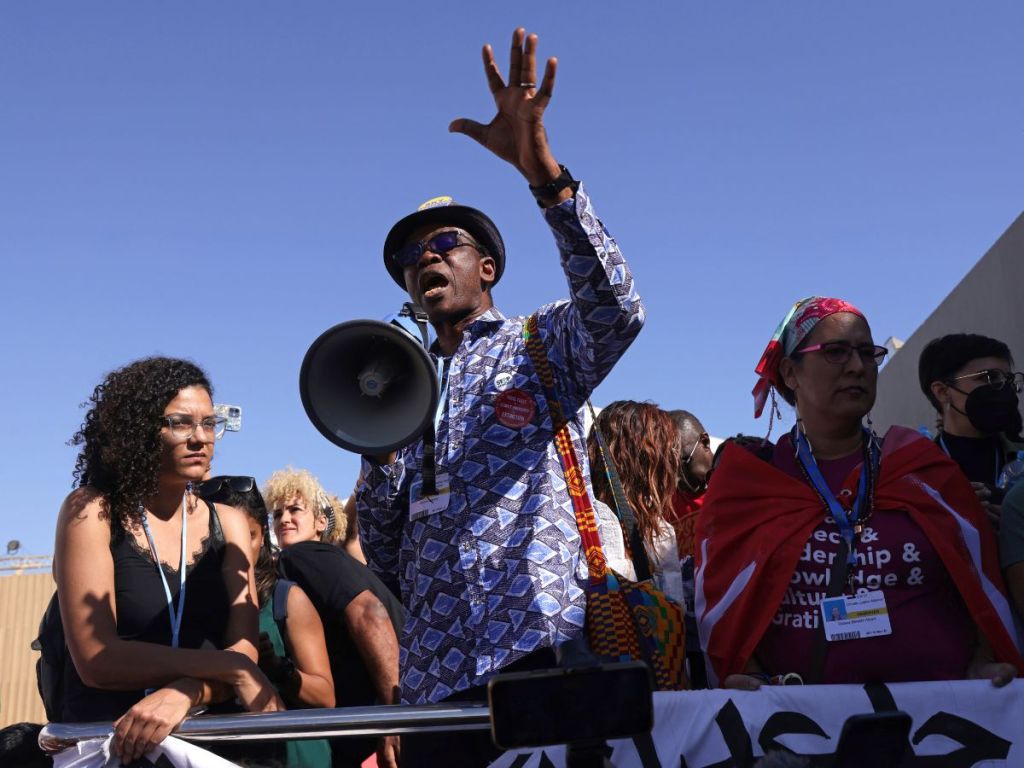The citizens of Nigeria are increasingly rejecting the Naira, their domestic currency, in exchange for cryptocurrencies such as Tether (USDT) and Bitcoin (BTC). As footage emerges of frustrated citizens queuing to withdraw their money from ATMs, it begs the question as to why Nigerians are adopting digital currencies over their own?
Nigerians embrace cryptocurrency
One of the clear trends emerging from last year’s Chainalysis Global Cryptocurrency Adoption Report was that grassroots adoption was highest in emerging markets across Africa, Asia and Latin America.
While Vietnam, Philippines and Ukraine took the top three positions respectively, Nigeria placed seventh for cryptocurrency adoption out of a possible 146 countries surveyed.
What are the possible factors that have contributed towards Nigeria adopting digital assets such as USDT — a US dollar denominated ‘stablecoin’ best conceived as a crypto version of a US dollar — and Bitcoin.
Why citizens of Nigeria reject their own currency for US dollar stablecoins and Bitcoin
Nigerians are worried about inflation
Let’s start with the fact that as a general rule, African currencies have a track record of depreciating rapidly against so-called ‘hard currencies’ such as the US dollar. To illustrate, consider the last two years alone where Nigeria’s currency, the Naira, has depreciated by over 17% against the US dollar.
The impoverished country already has an official inflation rate of over 21%, with food up almost 25% year-on-year. In that sense, citizens are already feeling the pain.
Coupled with the fact that traders are pricing in a 20-30% further currency depreciation after this year’s February election, things aren’t looking good for ordinary citizens and their purchasing power.
Nigeria is moving to a cashless society and the citizens aren’t interested
Over a year ago, the Central Bank of Nigeria (CBN) launched the eNaira, a central bank digital currency that promised to foster financial inclusion, combat counterfeit currency, improve tax collection and reduce of illegal activities.
The eNaira was slated to operate similarly to the digital Yuan which was released earlier and has already got significant traction, although many in the West and elsewhere remain sceptical due to its surveillance capabilities.
Whether it relates to fears of a social credit score or centralised authorities having control over one’s money, Nigerians have largely rejected the eNaira and the central bank’s push towards a cashless economy. A Bloomberg report late last year found that just 0.5% of the country’s population had used the eNaira.
In an effort to increase the adoption of the eNaira, coupled with the fact that the nation’s foreign reserve coffers are nearing empty, banks have imposed strict limits on international transactions and ATM withdrawals.
Around the country, banks have imposed restrictions of between US$20 and US$100 for international transactions per month. Meanwhile, people are trying to get their money out of ATMs as fast as they can, but they’re struggling with a newly imposed US$44 limit.
For these and other reasons, Nigerians have turned to digital assets such as the stablecoin Tether (USDT) and Bitcoin. It’s been suggested that in countries like Nigeria where inflation is rampant, the citizens are opting out by adopting a strategy that has a combination of the local currency for daily living expenses, US dollars (or stablecoins) for short-to-medium term savings, and Bitcoin for long-term savings.
Nigeria wants Bitcoin and will pay twice the price to get it
Since financial controls within the nation are tight, most of the cryptocurrency trading volume is done through peer-to-peer exchanges. From there, citizens of Nigeria are looking to ‘become their own bank’ by taking control of their Bitcoin in their mobile wallets.
Lately, with the newly imposed restrictions on ATM withdrawals, citizens are seeking access to Bitcoin with some paying a premium of anywhere between 60% to 100% on the current US dollar Bitcoin price.
In discussion with The Chainsaw, when asked as to why Nigerians would pay as much as twice the going rate for Bitcoin, Jeremy Majid the CEO of the Australian Bitcoin Industry Body said:
“Unfortunately many Nigerians are learning the hard way about counter-party risk and scarcity. They trusted their banks to store their wealth, but discovered that the banks don’t actually have their money as they’ve lent it out to someone else. They trusted their government to preserve their wealth, by storing their savings in their local currency, but the supply of the Nigerian Naira fiat currency has increased 80-fold since 2000, destroying their purchasing power. Bitcoin has a fixed money supply and allows users to take custody of their own coins; it doesn’t require trust in any other party. It’s no wonder demand for Bitcoin is high in Nigeria, even at a premium.”
Bitcoin volatility
Despite Bitcoin’s volatility, Nigerians are clearly drawn to a payments network outside of the control of the state and that over time has tended to appreciate. On peer-to-peer exchanges where most of the volume takes place, official data suggests that relative to Nigeria’s native currency, Bitcoin has appreciated by as much as 102% over the past year. By contrast, Bitcoin’s return based on the going rate on regulated exchanges in the US is down 40% over the same period.
In any event, it’s clear that as the nation appears gripped by an array of socio-economic and political challenges, some citizens are opting out of the financial system that, at face value, doesn’t appear to be serving a good chunk of the population.
What’s the ultimate lesson in all of this? Bitcoin and US dollar denominated stablecoins such as Tether mean different things to different people, depending where you live. If you’re fortunate enough to live in a country with low inflation and a healthy banking system, Bitcoin may look like a speculative bet. However, for those countries that are impoverished with low levels of financial freedom, Bitcoin may be the “peaceful financial revolution” that advocates like Michael Saylor frequently talk about.





